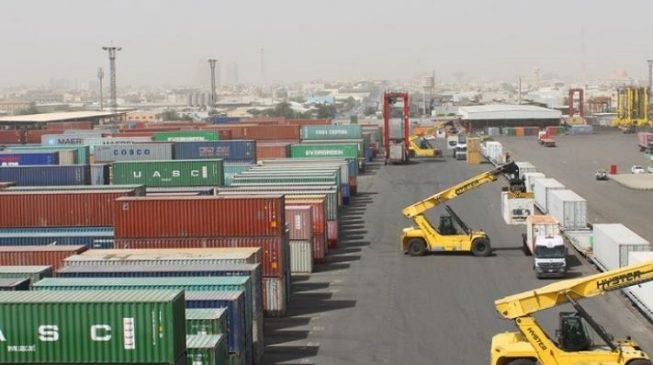The Federal Government of Nigeria is considering the establishment of more dry ports across the country to enhance ports productivity.
This was made known to public by the director-general of the Infrastructural Concession Regulatory Commission (ICRC), Chidi Izuwah on Thursday when he went to inspect some federal government projects in Kano with the management of ICRC.
Amongst projects inspected are Oasis Oxygen Plant at Aminu Kano Teaching Hospital and the dry port in Kano state.
Dagbolu in Osun state, Lolo in Kebbi state, Onitsha in Anambra state and Ogwashi-Uku in Delta state; these locations are currently under considerations.
According to Izuwah, Nigeria’s seaport facilities have been over-stretched.
“Conventional ports, which have always been congested by moving the consignments to the nearest dry port as soon as they arrived where their owners would clear and deliver to their respective warehouses and destinations at less transport cost and stress,” he said.
“For effective coverage of the hinterlands across the country, there are seven approved locations for the Inland Container ICDs, which are under concession with Private Sector Operators.
“The ports are; IsialaNgwa in Aba, Erunmu in Ibadan, Heipang, located in Jos, Zawachiki, Kano, Funtua in Katrina, Jauri, Maiduguri while ICNL in Kaduna.”
The ICRC boss said the federal government is also committed to the speedy completion of the Dala Inland Dry Port at Zawachiki in Kumbotso, Kano adding that the inland container depots (ICDs) in Nigeria are catalysts for trade stimulation.
“It receives containers by rail or road from the seaport for inspection and clearance by Customs as well as other relevant Authorities,” he said.
“It has all the loading and off-loading equipment needed to handle containers.
“Other benefits include providing the impetus to revive and modernise the railway as a primary mode for long-distance haulage as well as to assist in the overall costs of cargo to hinterland locations and transit cargoes to landlocked countries.”
